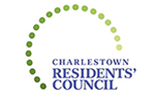Last Updated on January 18, 2025
Updated Scam Warning
Experts estimate that over 80% of Americans have received data breach notices in the last year. Medical and personal information of one-third of us were stolen from Change Healthcare, which processes US medical data.
We must assume that criminal hackers on the Dark Web have our personally-identifying info. They will sell it to thieves and use it to try to scam us. What to do?
Do not answer emails, texts or phone calls unless you are certain you know and trust the sender.
Do not click on links or call phone numbers in emails, texts or voicemails.
Don’t respond to pop-ups on your computer. Delivery services, government agencies, EZ Pass and tech help do not send out messages asking for your password, account info or money. Assume stranger contacts are scams!
Freeze your credit. Use two-factor authentication for online accounts. Use strong passwords.
When in doubt about unexpected contacts, consult a trusted security person. Be skeptical and don’t panic. Scam attempts are targeting all of us online these days.
Ed Appel, Safety-Security Committee Chair
